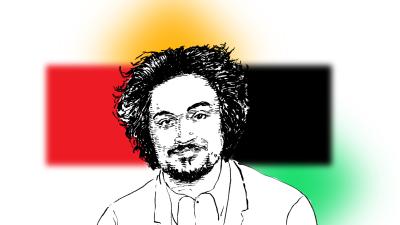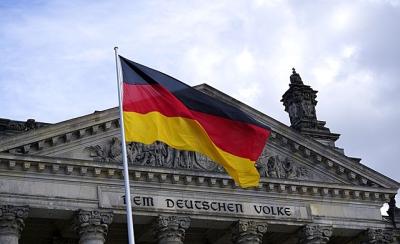Europe is an officially secularised continent. Christianity is seen either as folklore or a disturbing relic. Significantly, the 19th century transformed Western societies in several ways. Liberalism sought to push religion out of the public sphere and into the private domain. In their efforts to degrade religion to a man-made, "secular thing", the national states, at the same time as nationalism and later its totalitarian varieties, forced a sacralisation of the political sphere. Communism also did not tolerate religion because its manifesto was a gospel, its leader a Messiah and its mission nothing less than the redemption of humanity.
Even without drifting into the worst anti-religious regimes, an astonishing renaissance of the religious dimension can be found in de-Christianised Europe. Chesterton already anticipated this development when he postulated at the beginning of the 20th century that without Christianity, people would not begin to believe in nothing at all, but instead in all sorts of things. When a society loses its backbone of faith, finding it again is difficult. This requires not only new convictions, but also strict, unquestionable dogmas.
Chesterton already analysed a whole series of modernist dogmas that determined the zeitgeist in his time. The supposedly free and democratic society had a corset of faith at least as strict as the Inquisition - in doubt, this corset was even more ruthless. This tendency to create a new cement, a "new idea" in a godless society with an ideology built on dogma, has become more popular than ever in recent decades.
While the language of the church has become more and more political in recent years, the language of the political sphere has become more and more religious: Each and every election campaign is an end-time battle between good and evil, a choice between saviour and demon, while the deviation from the dominant political opinion has become a heresy that must be outlawed and punished by exclusion. The claim that in a liberal democracy a better argument or even a more convincing position always wins has nothing to do with reality. Though they declare to always "follow science", there is hardly a field as mined as that of “climate change”. At least in Germany, that notion has only been described as "climate catastrophe" and thus a truly impending apocalypse for years by now.
One must not fall into the same clumsy comparisons that also apply in the conservative camp when talking about sects, the sale of indulgences, a new religion and other buzzwords. The problem goes deeper. It would be simpler, of course, if the climate movement were really a new church. In reality, the worship of politics as a new golden calf is a weightier and more dangerous matter. This is not the matter of one religion replacing another. It is rather the matter of a great confusion where beliefs exist but can be arbitrarily changed from day to day. These are worldviews that bridge meaninglessness for a few months or years, but there is nothing that gives the believer support or salvation for a lifetime.
It is therefore no coincidence that in the perfection of totalitarianism, arbitrariness rules who is shot: Think of Stalin and Mao, who had close companions persecuted and killed simply because what they postulated as truth yesterday could be considered as a lie tomorrow. In 1984, George Orwell summed up this trait of dehumanised ideologies by saying that “Oceania was never at war with Eurasia, but always with East Asia”. Those who yesterday were at the forefront of the LGBT movement because they stood up for the rights of lesbians can tomorrow be enemies of the state because they want to defend the shelters of women against "transwomen". The feminist who was revered yesterday can be an outlaw transphobe tomorrow. This is the power of modern dogma.
The German Greens are a party of dogma par excellence. The dogma stands firm and unwavering until an order comes to change it; at the time of its existence, however, the dogma is as unquestionable as the change between day and night. The Greens started out as part of the peace movement, but are now in favour of supplying weapons to war zones. They once spoke out in favour of environmental protection and are now leveraging it to plaster Germany with solar and wind power plants. One dogma, however, that has remained unchanged since the 1980s, has been, so to speak, an imperative of the Greens since their founding: namely, the nuclear phase-out.
These explanations are therefore necessary to understand what happened in Germany in April. It is important to underline that the nuclear phase-out is not a purely green idea. It is true that a (first) nuclear phase-out was already negotiated under the Red-Green government of the Social Democrat Gerhard Schröder. Angela Merkel's government, which first formed a coalition with the Social Democrats in 2005 and then with the Liberals in 2009, first tried to reverse or at least delay this phase-out. But it was Merkel, of all people, who initiated the nuclear phase-out herself in 2011: officially under the impression of the tsunami disaster in Fukushima, unofficially because there was a threat of the Greens winning the next elections.
At that time, large parts of the party-political landscape as well as society had internalised the anti-nuclear dogma. This technology was dangerous and uncontrollable in principle, they said. In parliament, only 9 out of 600 MPs voted against the shutdown; and although the 70 post-communist MPs of the Left Party also voted against it, they only did so because they even wanted to enshrine the nuclear phase-out in the “Basic Law” (“Grundgesetz”). The phase-out as such was therefore the deed of Merkel, who ultimately jumped on the green bandwagon. And with the “Energiewende” she formulated the next, untouchable green dogma, which still holds valid today.
It therefore does not matter that the nuclear power plants that have already been shut down would have significantly improved Germany's CO2 balance, or that those that have been shut down only now would have helped at least somewhat to achieve the climate goals; it does not matter that Germany has therefore for years pursued a gas strategy that has been highly problematic in terms of geopolitics, climate policy and price policy; it does not matter that a new generation of nuclear power would solve many of the problems that the Greens and their non-partisan as well as non-media representatives claim they have caused in the first place; it doesn't matter that Germany is one of the "dirtiest" countries in terms of energy supply, while France, with its decades-long nuclear policy, is much "cleaner", and the neighbouring Poland is also thinking about building nuclear power plants; and it does not matter at all that Germany is shutting down its nuclear power, but still imports nuclear power from neighbouring countries because of flat winds and the lack of sunshine hours. Because a dogma is a dogma.
There is a striking image of that 15 April. The scene was the square in front of the Brandenburg Gate in Berlin. Greenpeace used a stabbed dinosaur surrounded by radioactive waste, over which a red sun triumphed. On it, the old slogan was displayed: "Atomic Power - No Thanks!" A remnant of the environmental movement of the last century. Who the real dinosaur was in this game, none of the dogmatists questioned. Whether they were aware that the iconography bore a striking resemblance to the victory of St. George over the dragon remains open; that the sacred and the profane were thus once again exchanged in favour of an ideological message, on the other hand, remains obvious.
Read also
In the stranglehold of the climate extremists
At the carnival parade in Düsseldorf, one float caught the eye: it showed a member of the climate extremist "Last Generation" fighting a “car monster”. Düsseldorf thus adopted the common narrative of "David against Goliath" and assigned the role of heroes to the extremists - not least because the slogan underneath, "Who's the climate terrorist here?" made it clear that the CO2 guzzlers are responsible, not the activists.
Marco Gallina
Country Report: Germany Faces Loss of Prosperity
Despite the economic downturn, citizens are threatened with new taxes and hidden levies, for example through a reform of the heating law or the CO2 tax.
Marco Gallina
The Individual on the Defensive
Do Nazis have a right to life? Outside Germany, such a debate might seem perplexing. But during the last days of May, discussions in Germany revolved around nothing less, after a left-wing extremist was released under quite lenient conditions.
Marco Gallina
The AfD: Caught between Realpolitik and Dreaming
Things are actually going well for the AfD. The right-wing nationalist party is soaring in the polls and is potentially the third strongest party in the country. It has had to do little to achieve this.












Comments (0)